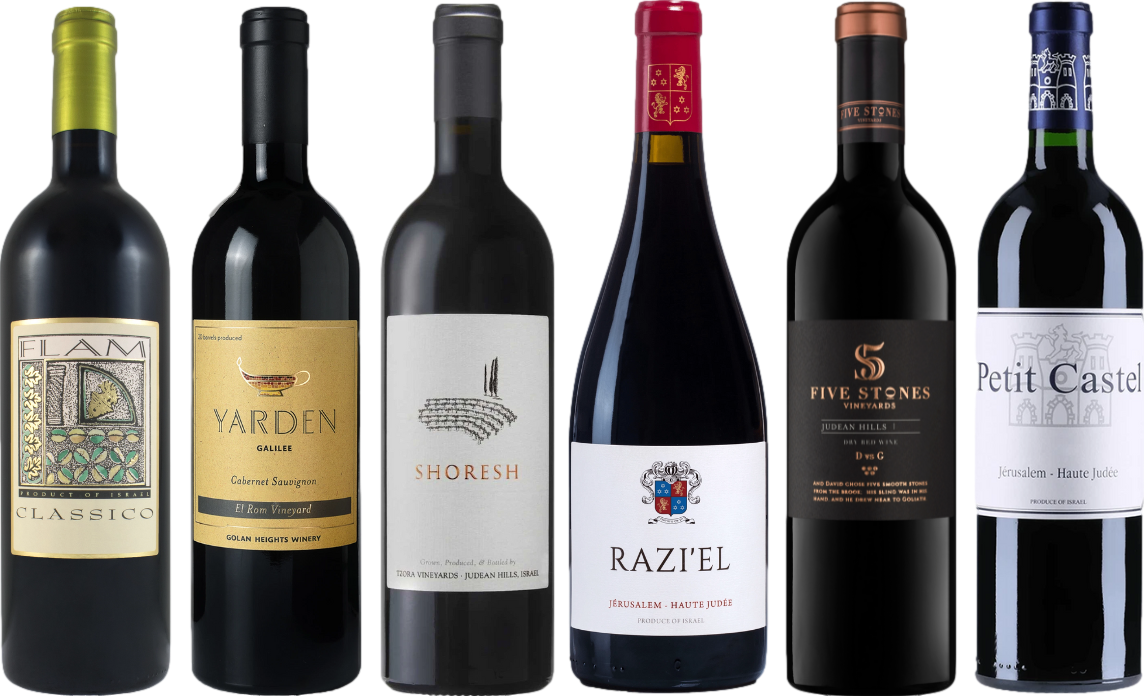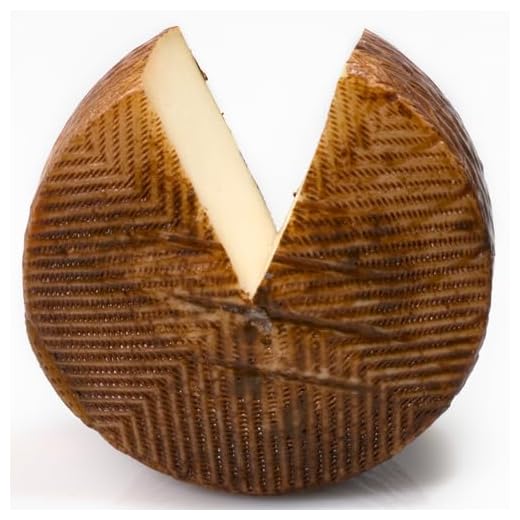



If you’re looking for an exceptional match, consider a bold Cabernet Sauvignon alongside a robust aged Gouda. The nutty, caramel notes of the cheese complement the rich tannins of the wine, creating a delightful balance on the palate.
Another fantastic combination is a fruity Pinot Noir paired with creamy Brie. The wine’s acidity cuts through the cheese’s richness, while the soft texture of Brie enhances the wine’s silky mouthfeel. This pairing is particularly enjoyable when served with fresh berries or a drizzle of honey.
For a heartier option, try a Malbec alongside sharp Cheddar. The cheese’s sharpness accentuates the wine’s fruitiness, while the bold flavors harmonize beautifully. This duo works well with grilled meats or hearty dishes, making it a perfect choice for cozy gatherings.
Finally, don’t overlook the classic pairing of Merlot and blue cheese. The creaminess of the cheese and the wine’s smooth finish create a luxurious experience. A touch of fig jam or a slice of pear can enhance this pairing further, adding a sweet contrast to the savory elements.
Pairing Suggestions for Your Next Red Wine Experience
For a delightful combination, consider aged Gouda. Its nutty and caramel notes beautifully complement the tannins in many varietals. Another standout is Brie. The creamy texture and subtle earthiness harmonize with fruit-forward reds, creating a luxurious mouthfeel.
Hard cheeses like Parmigiano-Reggiano pair splendidly with bold selections such as Cabernet Sauvignon. The saltiness of the cheese balances the wine’s intensity, enhancing both flavors. Additionally, try a rich blue cheese with a fruity Zinfandel. The sweetness of the wine cuts through the strong flavors, offering a balanced experience.
Regional Favorites
Explore regional pairings like Chianti with Pecorino. The sheep’s milk cheese brings out the wine’s acidity and herbal notes. If you’re enjoying a Syrah, opt for a smoky cheddar. The robust characteristics of the cheddar elevate the wine’s spicy undertones. For something different, a fruity Malbec pairs wonderfully with a creamy goat cheese, resulting in a pleasant contrast.
Enhancing Your Meal
Incorporate these pairings into your dining experience. If grilling meats, consider a hearty red and a sharp cheese. For instance, a well-cooked beef brisket can be perfectly complemented by a robust wine and a strong cheese. For tips on preparing the brisket, check out this guide on how to cook a beef brisket on a pellet grill.
Experiment with these combinations to discover your ideal match. The right selection can enhance your appreciation of both the wine and the cheese, making each sip and bite a memorable experience.
Pairing Bold Red Wines with Aged Cheddar
Aged cheddar complements full-bodied cabernets and zinfandels beautifully. The sharpness and complexity of the cheddar enhance the fruit-forward notes and tannins in these wines. Look for a mature cheddar that has rich, nutty flavors and a crumbly texture, which creates a delightful contrast with the smoothness of the wine.
When selecting a cabernet, consider options from Napa Valley. Their ripe fruit and structured tannins pair seamlessly with the robust character of the cheddar. Alternatively, a well-aged zinfandel, with its spicy undertones and jammy fruit, provides an exciting match, highlighting the savory aspects of the cheese.
For serving, slice the cheddar into wedges or cubes and allow it to come to room temperature. This enhances its flavor profile, making the pairing even more enjoyable. A small handful of nuts or dried fruits on the side can also elevate the tasting experience, adding more layers to the flavor combination.
Experimenting with different vintage variations will lead to new discoveries. Aged cheddars can vary widely in taste depending on their aging process and origin, so don’t hesitate to try different styles. Each combination promises a unique tasting adventure that showcases the best of both the cheese and the wine.
Exploring Syrah and Blue Cheese Combinations
For a delightful pairing, consider bold Syrah alongside the rich, tangy notes of blue mold varieties like Roquefort or Gorgonzola. The wine’s dark fruit flavors and peppery finish beautifully complement the creamy texture and sharpness of the cheese.
Flavor Profiles to Consider
Syrah tends to exhibit flavors of blackberry, plum, and spice, making it an excellent match for the saltiness and pungency of blue cheeses. The interplay between the wine’s tannins and the cheese’s creaminess creates a harmonious balance that enhances both elements.
Serving Suggestions
Serve your Syrah slightly below room temperature, around 60-65°F (15-18°C), to highlight its complex flavors. Pair it with blue cheese on a charcuterie board, alongside nuts and dried fruits, or enjoy it with a simple salad featuring walnuts and pears for a refreshing contrast.
Experimenting with different blue varieties, such as Stilton or Maytag, can further elevate the tasting experience. Each type brings its own unique character, which can shift the dynamics of the pairing in exciting ways.
Best Cheeses for Merlot: A Guide
For a delightful experience with Merlot, consider pairing it with Brie. This soft, creamy option enhances the fruitiness of the wine while its subtle earthiness balances the rich flavors.
Another excellent choice is Gouda, particularly aged varieties. The nutty and caramel notes in aged Gouda complement the smooth tannins and dark fruit characteristics found in Merlot.
Gruyère also makes a fantastic pairing. Its complexity and slightly sweet profile harmonize wonderfully with the wine’s roundness, bringing out the deeper flavors.
For something more robust, try a smoked Cheddar. The smoky essence adds depth, creating an intriguing contrast with Merlot’s berry notes.
Finally, consider a tangy goat cheese. Its acidity brightens the palate and accentuates the wine’s fruity elements, making each sip more enjoyable.
| Cheese | Tasting Notes | Pairing Characteristics |
|---|---|---|
| Brie | Soft, creamy, earthy | Enhances fruitiness |
| Aged Gouda | Nutty, caramel | Balances rich flavors |
| Gruyère | Complex, slightly sweet | Harmonizes roundness |
| Smoked Cheddar | Robust, smoky | Creates intriguing contrast |
| Goat Cheese | Tangy, creamy | Brightens palate |
How to Match Cabernet Sauvignon with Gouda
Pairing Cabernet Sauvignon with Gouda is a delightful experience. The rich, nutty flavors of Gouda perfectly complement the boldness of this wine. Opt for an aged Gouda, as its caramel notes and crystalline texture enhance the wine’s dark fruit character.
When serving, allow both the wine and the cheese to reach room temperature. This releases their full range of flavors. A glass of Cabernet Sauvignon should showcase its blackcurrant and plum notes, providing a lush backdrop for Gouda’s creaminess.
Consider additional pairings, such as dried fruits or roasted nuts, to elevate the tasting experience. The saltiness of the cheese balances the wine’s tannins, creating a harmonious combination that lingers on the palate. Experiment with different aging profiles of Gouda to discover new dimensions in flavor and texture.
Soft Varieties and Their Harmony with Pinot Noir
Camembert stands out as an exceptional companion to Pinot Noir. Its creamy texture and earthy notes complement the wine’s berry flavors, creating a delightful balance. The slight tanginess of this soft variety enhances the wine’s acidity, making each sip a pleasure.
Brie, another soft delight, pairs beautifully with the fruit-forward characteristics of Pinot Noir. The richness of Brie softens the wine’s tannins, allowing the cherry and plum notes to shine. Opt for a ripe Brie for a more indulgent experience.
Exploring Other Soft Selections
Fromage Blanc, with its light and creamy profile, offers a refreshing contrast to the vibrant acidity of Pinot Noir. The subtle tang and herbaceous qualities of this cheese can elevate the wine’s complexity, making it an excellent choice for a summer gathering.
Lastly, the delicate nature of Ricotta works wonders with this varietal. Its mild flavor allows the nuanced characteristics of Pinot Noir to take center stage, while the cheese’s creamy consistency creates a smooth mouthfeel that enhances the wine’s overall enjoyment.
Understanding Tannins: Which Cheeses Work Best?
Pairing rich, tannic reds requires a thoughtful approach to selecting dairy companions. Aged varieties, which possess a stronger flavor profile, can stand up to the structure and intensity of these wines.
- Parmesan: The crystalline texture and nutty flavors complement the astringency of tannins, enhancing both the cheese and the wine.
- Gruyère: This Swiss delight offers a blend of sweetness and nuttiness, making it a fantastic match for full-bodied varietals.
- Manchego: The sheep’s milk variety introduces a creamy mouthfeel and a slightly tangy finish, balancing the boldness of tannic reds.
- Comté: Aged Comté’s complexity, with hints of caramel and nuttiness, pairs beautifully with wines like Cabernet Sauvignon.
For those who enjoy a touch of funk, blue options can create a striking contrast. The saltiness and creaminess of these varieties often soften the perceived tannins in bold reds.
- Roquefort: This blue cheese pairs exceptionally with Zinfandel, as the wine’s fruit-forward notes mellow the cheese’s pungency.
- Gorgonzola: The rich, creamy texture of Gorgonzola complements Merlot’s softness, creating a harmonious experience.
Ultimately, understanding how tannins interact with various dairy textures and flavors enables a more satisfying pairing experience. Experimenting with different combinations will lead to delightful discoveries.
Serving Tips for Cheese and Red Wine Pairings
Always serve at the right temperature. Most varieties thrive at around 60-65°F. For aged selections, consider slightly warmer temperatures to enhance their flavors. Meanwhile, lighter options benefit from a cooler serving temperature to maintain their freshness.
Presentation Matters
Utilize a wooden or slate board for a rustic appeal. Arrange selections in a circular pattern, starting from the mildest to the strongest. This allows guests to experience a gradual flavor transition.
Accompaniments
- Include fresh fruits like grapes, figs, or apples to offer a refreshing contrast.
- Introduce nuts such as almonds or walnuts for a crunchy texture.
- Provide artisan bread or crackers to cleanse the palate between tastings.
- Consider adding a drizzle of honey or a selection of jams to enhance sweetness.
Pairing should be a sensory experience. Encourage guests to take a moment to inhale the aromas before tasting. This heightens appreciation for the complex flavors present in both the selections and the beverage.
Cleansing the palate is vital, especially when sampling multiple varieties. Offer water or neutral flavored bites between tastings to reset taste buds.
Finally, feel free to experiment. Encourage creativity in pairing by trying unexpected combinations. Document what works, as personal preferences play a significant role in enjoyment.







